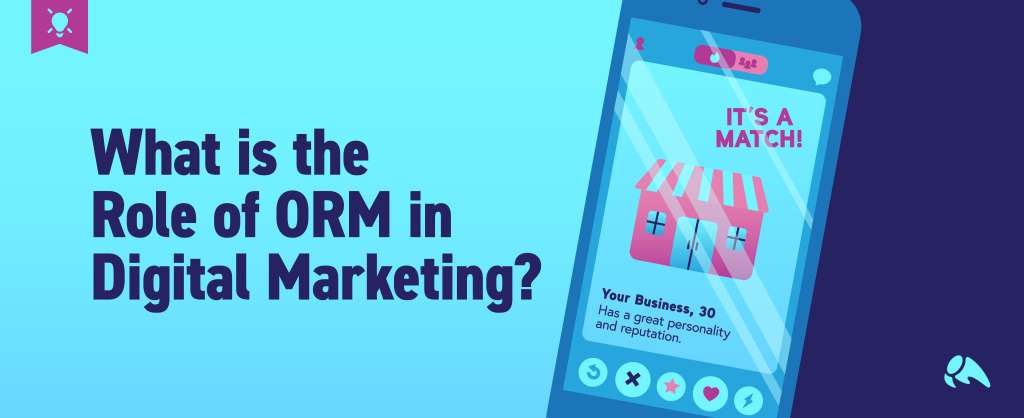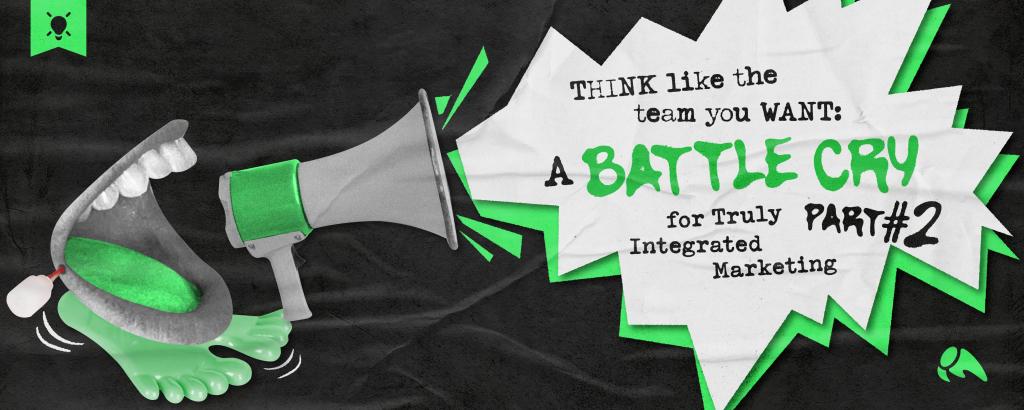
Powered by RedCircle
Online reputation management (ORM) is about monitoring and improving your business’s online reputation. It means looking and analyzing what a potential customer, reporter, or partner will discover about your brand, people, or product/service when they perform a Google search. Before they ever land on your website or pick up the phone to call you — what will they find when they look for you? And will they like it?
Said simpler: Is your online presence working for or against you?
This is the idea behind online reputation management.
How Does ORM Impact Digital Marketing?
It’s very easy for someone to judge you and your company by what they find on Google. According to recent surveys, about 95% of consumers read online reviews before buying a product, and over 81% are likely to read Google Reviews before visiting a physical business.
By searching for you online, they can come away with very different feelings about your company and what you offer, good or bad.
A negative online presence, or having no presence at all, can severely impact your company’s success (or you as an individual). Your online reputation counts whether you’re closing a business deal, developing a business partnership, or talking to reporters.
How Do I Know What My Reputation Is?
Before you can make improvements, you must first analyze your online life. Gauge your online presence by using our checklist below.
Search:
Google your business name, employees, or product name, and look at the first five listings.
- Are you in the first five listings?
If not, you’ve got work to do on your search ranking. - Are the links or reviews you see positive?
Hey, not everyone’s a happy customer. Make sure that your first impression on Google is as positive as possible. - Is there evidence of thought leadership or industry expertise?
Examples could be links to articles where you have been quoted, local news mentions, guest blogs, etc. - Are there any outright ORM fires that need to be addressed?
This could range from an employee in legal trouble to a disgruntled ex-employee leaving a bad review on Glassdoor.
Check your Google Business Profile (formerly Google My Business):
- Does one exist?
- Is the information accurate? Double-check your name, address, phone number, hours, etc.
Social:
Check your brand’s social channels.
- How many followers do you have on each platform?
- When was the last time you posted? Are you posting consistently?
- Do you respond to comments in a timely fashion?
- How about messages? What’s the average response time?
- Does what you’re posting accurately represent and reflect your brand?
- Check what’s being said on social about you from other accounts, and check your Facebook reviews/recommendations.
- Search your hashtags, location, and your brand name. Are people talking about you and your business? If so, is it positive commentary?
- If there are negative mentions, are others hopping on board, or do your social fans come to your defense?
Reviews:
Check review sites.
- Check out your Google reviews. Do you have any? How’s your star rating? Are you responding to reviews? Do you have a strategy for doing so?
- Check out your Facebook ratings/reviews. Are customers recommending your Facebook page? Is your team responding to these posts?
- Check out other review sites like Angi (formerly Angie’s List), Yelp, and TrustPilot.
- Check other online reviews/recommendation websites by searching your brand name plus reviews.
- Check out Glassdoor.com. While this isn’t a review site per se, many people searching for you online will check out your reputation according to your past and present employees.
- Check out third-party companies’ comparison sites that review your industry’s products and services. How do you rank against your competitors’ products and services?
OK, my online presence needs a little work… What now?
#1 Claim everything
Litter the search results with relevant content by claiming everything you can.
Claim your business on Yahoo. On Bing. Create a Facebook Business page. Claim your business on Yelp. On Citysearch. On Local.com. On YP.com. Create your LinkedIn company page. Even if you’re not planning on using a profile like TikTok or Snapchat, claim the name so no one else can use it and cause confusion later on.
#2 Set up reputation monitors
The best way to ease a reputation fire is to prevent one from starting. Setting up online monitors can alert you to potential problems before they have time to catch flame. Set up Google Alerts for your company’s name, key executives, and products and services. If your business is very active on social media, consider investing in a social media listening tool that will let you monitor what’s being said about you in real time.
#3 Protect the business by empowering your team
Work to develop a strong social media presence for your founders, owners, executives, and other key stakeholders. Many businesses are defined by the people who work for them. As such, it’s not uncommon for the public to search for the person (Steph Curry, Tim Cook) to find the company (Golden State Warriors, Apple).
#4 Increase your search ranking
If searching for your company didn’t bring you up in the first few search results, you might need some SEO help. SEO (search engine optimization) is meant to help improve your ranking organically on search engines. Or you might need some content strategy or blogging help. Often having nothing appear for your brand or people is as bad as having negative reviews. It may make people infer negative things about you or, at minimum, leave you open to potential brand attacks. When not much ranks for your name, it’s easy for harmful content to gain traction quickly.
#5 Coordinate public relations events
If there’s little there, or not everything said about your business is positive, you might consider planning some strategic PR events to cast your business in a more positive light. This could include things like supporting community causes, partnering with another local organization with a great reputation, or highlighting some of the innovations happening within your company.
#6 Hire someone to help with online reputation management
If your reviews are being neglected, and your customer service team is too small or too busy to handle it, looking into an agency or partner who can help you manage your online reviews would be beneficial to your business. In the current digital world, online reviews are worth their weight in gold. Too many negative reviews can damage your business, whereas primarily positive reviews can keep new customers knocking at your door. A partner can also help launch review campaigns, which involve reaching out to your existing customer base and kindly asking them to leave a review on specific platforms.
# 7 Work with a social media manager
Social media is a growing part of how businesses position themselves digitally. Prospective customers, current customers, and influencers are all checking out your social presence and determining whether they want to work with you – or not. You’re missing a huge opportunity to grow your business if you’re not engaging and responding on social media.
There you have it – all things ORM. How to track it and how to improve it. The key now is to stay on top of it. ORM is not a one-and-done activity. Like most marketing, it requires constant upkeep and frequent monitoring to see how you’re doing. Keeping tabs on how your brand is represented online will only help your business in the long term.







